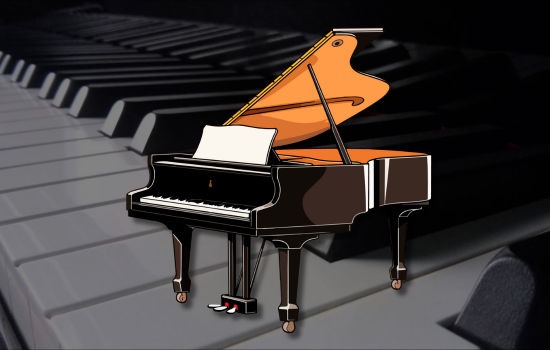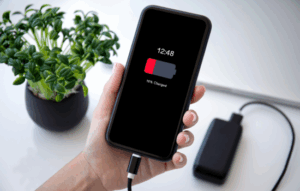Advertisements
Learn piano and opens the door to a musical universe full of possibilities. If you've always dreamed of playing melodies and developing an artistic skill that enriches your life, this article is for you.
Here you'll find effective strategies, practical tips, and digital tools that will help you advance your piano learning process in a structured and motivating way.
Advertisements
The piano is one of the most versatile and complete instruments, capable of playing everything from classical pieces to the most modern rhythms.
With the right dedication and the use of innovative resources, learning the piano can be a rewarding experience that combines theory, practice, and creativity. In this tutorial, we'll show you how to organize your practice, set realistic goals, and leverage technology to improve your technique.
See also
Advertisements
- Learn Accordion Quickly: Apps to Master the Instrument
- Monitor WhatsApp from Any Cell Phone
- Play GTA 5 on mobile: Enjoy the game on your mobile device
- GPS Apps: The Ultimate Guide to Accurate Navigation
- Turn Your Cell Phone Into an Amateur Radio
Why Learn Piano?
The piano is not only an iconic instrument in the world of music, but it also offers multiple benefits for those who decide to embark on the path of musical learning:
- Cognitive and Emotional Development:
Playing the piano stimulates concentration, memory, and motor coordination. Music also has the power to improve mood and reduce stress. - Musical Versatility:
The piano is the foundation of many musical compositions and is used in genres as diverse as classical, jazz, pop, and rock. Learning it will give you a better understanding of musical structure and will help you learn other instruments. - Artistic Opportunities:
With the piano, you can play songs, compose your own pieces, and participate in musical activities, whether live performances, home recordings, or collaborations on artistic projects. - Accessibility:
There are numerous resources, both in person and online, that make learning piano more accessible than ever. From private lessons to interactive apps, you have everything you need to get started at your fingertips.
Strategies for Learning Piano Effectively
To achieve a good level of piano performance, it's essential to adopt study methods that allow you to progress systematically and with motivation. Here are some key strategies:
1. Define Clear and Achievable Goals
- Short Term Goals:
Set daily or weekly goals, such as learning proper hand position, mastering the C major scale, or practicing reading simple sheet music. These goals will help you build a solid foundation. - Medium Term Goals:
As you gain confidence, set challenges like playing a short piece or working on hand coordination. This will allow you to notice progress and adjust your learning pace. - Long Term Goals:
Visualize mastering complete pieces, the ability to improvise, or even the ability to compose your own melodies. Keeping your vision in mind will keep you motivated at every stage.
2. Establish a Daily Practice Routine
Constant practice is essential for progressing on any instrument. Consider the following:
- Short Daily Sessions:
It's better to practice 20 to 30 minutes every day than to do one long, sporadic session. Regularity helps consolidate muscle memory and technique. - Heating:
Before you begin, do warm-up exercises to prepare your fingers and wrists. This can include slow scales or arpeggios, which also help improve agility. - Division of the Session:
Organize your practice into sections: reviewing what you've learned, introducing new concepts, and practicing complete pieces. This division allows you to work in a balanced way on different technical and musical aspects.
3. Combine Theory and Practice
Theoretical knowledge complements practice and helps you understand music more deeply:
- Study Music Theory:
Learn about chords, scales, intervals, and rhythms. Understanding how musical pieces are constructed will make reading and performing music easier. - Read Sheet Music and Tabs:
Familiarize yourself with musical notation. It may seem complicated at first, but consistent practice will make reading it natural and fluid. - Analyze Songs:
Choose some simple pieces and break them down: identify the structure, chords, and rhythmic patterns. This will help you understand how a composition is organized.
Tools and Apps for Learning Piano
Technology has revolutionized music learning. Today, there are numerous apps and online resources that can complement your lessons and accelerate your progress. Here are some of the best options:
1. Simply Piano
Simply Piano It is an interactive application designed to learn piano from scratch.
- Interactive Lessons:
The app offers step-by-step tutorials that teach you everything from hand positions to performing popular songs. - Real-Time Feedback:
As you practice, Simply Piano gives you immediate feedback, helping you correct mistakes and improve your technique. - Song Library:
It includes a wide repertoire of pieces that adapt to different levels, allowing you to advance at your own pace.


2. Flowkey
Flowkey is another highly rated piano learning platform.
- Video Tutorials:
It offers video lessons with professional musicians, making it easier to understand the techniques and perform the pieces. - Interactive Mode:
Allows the app to listen to your performance and give you suggestions for improvement. - Repertoire Diversity:
With Flowkey, you can learn both classical and modern pieces, adapting to your tastes and goals.


3. Marvel Piano
Marvel Piano It is a tool aimed at intensive practice and progress monitoring.
- Exercises and Evaluations:
The app includes a wealth of exercises designed to improve speed, accuracy, and technique. - Progress Reports:
Track your progress and see which areas you need to focus on. - Cross-Platform Compatibility:
Available for computers and mobile devices, allowing you to practice in a variety of environments.

4. Yousician
Although Yousician is known for teaching a variety of instruments, her piano module is very comprehensive.
- Gamified Lessons:
With a system of levels and challenges, Yousician makes learning piano fun and motivating. - Real-Time Interaction:
The app listens to your performance and provides immediate feedback, which accelerates learning.


Additional Tips to Optimize Your Learning
In addition to following a disciplined routine and using the right apps, keep these tips in mind to get the most out of your learning experience:
Record your Sessions
- Self-assessment:
Recording your practices allows you to identify mistakes and evaluate your progress over time. - Share and Receive Feedback:
If you have the opportunity, show your recordings to a teacher or other students for feedback and improvement.
Find a Mentor or Teacher
- Personalized Classes:
An experienced teacher can correct your mistakes, offer personalized advice, and accelerate your learning. - Virtual Mentoring:
Nowadays, there are many online platforms that offer real-time piano lessons, which can be a great alternative if you can't attend in-person classes.
Participate in Piano Communities
- Forums and Groups on Social Networks:
Joining pianist communities allows you to share experiences, resolve doubts, and find motivation. - Events and Workshops:
Participate in musical events, concerts, or piano workshops to gain inspiration and learn new techniques.
Maintain a Positive and Patient Attitude
- Celebrate Your Achievements:
Every step forward, no matter how small, is an important step on your journey. Recognizing your progress will keep you motivated. - Accept Mistakes:
The learning process involves making mistakes. Use every mistake as an opportunity to improve and learn something new.

Conclusion
Learning the piano is an exciting journey that combines discipline, creativity, and a passion for music. With the right strategies, a consistent practice routine, and the support of digital tools like Simply Piano, Flowkey, Marvel Piano and Yousician, you will be able to accelerate your learning process and enjoy the piano more effectively.
Remember to set clear goals, combine theory and practice, and make the most of the technological resources at your disposal. Perseverance and patience are key to overcoming initial challenges and becoming a competent pianist.
Whether you're a complete beginner or already have some experience, the path to piano mastery is filled with opportunities to grow and express yourself. Start today, schedule your practice sessions, use the recommended apps, and let the piano transform your musical life!
Every note, every chord, and every melody you learn will bring you closer to achieving your musical dreams. Go ahead, and may your passion for the piano light your path to mastery!




